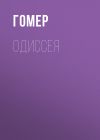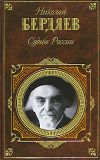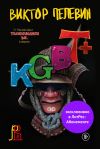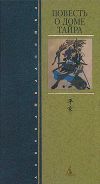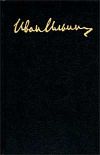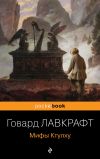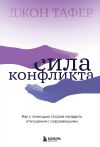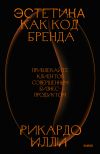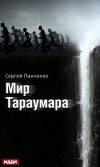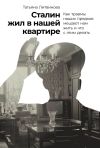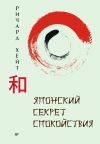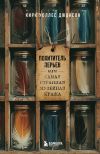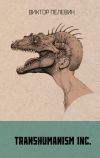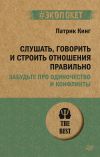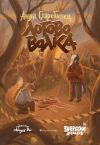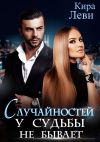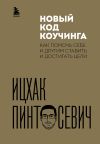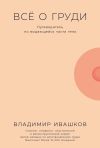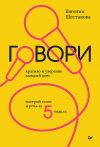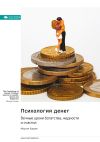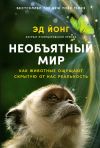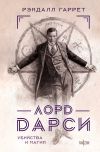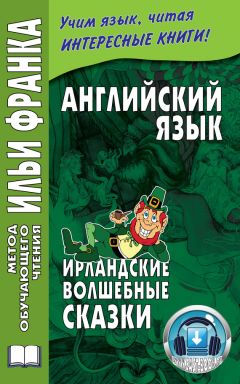
Автор книги: Оскар Уайльд
Жанр: Иностранные языки, Наука и Образование
Возрастные ограничения: +12
сообщить о неприемлемом содержимом
Текущая страница: 3 (всего у книги 16 страниц) [доступный отрывок для чтения: 5 страниц]

“Well, you have a great work before you today. That stable you cleaned yesterday hasn’t been thatched these seven hundred years, and if you don’t have it thatched for me when I come home tonight, with birds’ feathers, and not two feathers of one colour or kind, I’ll have your head on the seven hundredth spike tomorrow.”
“Here are two whistles (вот два свистка; to whistle – свистеть; whistle – свист; свисток), – an old, and a new one (старый и новый /свисток/); take your choice of them (выбери один из них: «возьми твой выбор из них») to call the birds (чтобы подзывать птиц; to call – кричать, закричать; звать, подзывать).”

“Here are two whistles, – an old, and a new one; take your choice of them to call the birds.”
The king’s son took the new whistle (королевский сын взял новый свисток; to take /took, taken/), and set out over the hills and valleys (и отправился в путь по холмам и долинам; to set – класть, ставить; to set out – выставлять, помещать /наружу, за дверь и т. п./; отправляться /в путешествие/, пускаться /в путь/), whistling as he went (посвистывая /в свисток/ на ходу: «свистя, в то время как он шел»). But no matter how he whistled (но как бы он ни свистел: «неважно, как он свистел»; matter – вещество, материя; no matter – безразлично; все равно, неважно; no matter how – как бы ни), not a bird came near him (ни одна птица не приблизилась к нему: «не подошла близко к нему»). At last, tired and worn out (наконец, уставший и изможденный; to wear – быть одетым /во что-л./, носить /одежду и т. п./; утомлять, изнурять; worn – изношенный, потертый; усталый, изнуренный, измотанный) with travelling and whistling (от долгого хождения: «путешествия» и свиста; to travel – путешествовать; двигаться, перемещаться, передвигаться), he sat down on a hillock (он присел на холмик; to sit /sat/) and began to cry (и начал плакать; to begin /began, begun/; to cry – кричать, орать; плакать).

The king’s son took the new whistle, and set out over the hills and valleys, whistling as he went. But no matter how he whistled, not a bird came near him. At last, tired and worn out with travelling and whistling, he sat down on a hillock and began to cry.
That moment Yellow Lily was at his side (в тот же момент Желтая Лилия появилась рядом с ним: «была у его бока»; side – бок, сторона; место рядом; at smb.’s side – рядом с кем-л.) with a cloth (со скатертью; cloth – ткань, сукно; скатерть), which she spread out (которую она расстелила; to spread /spread/ – распространять /по поверхности/; расстилать), and there was a grand meal before him (и вот перед ним была великолепная еда; grand – грандиозный, величественный; великолепный, роскошный). He hadn’t finished eating and drinking (он /еще/ не закончил есть и пить), before the stable was thatched with birds’ feathers (как: «до того, как» конюшня была покрыта птичьими перьями), and no two of them of one colour or kind (и не было /среди/ них двух одного и того же цвета или вида).

That moment Yellow Lily was at his side with a cloth, which she spread out, and there was a grand meal before him. He hadn’t finished eating and drinking, before the stable was thatched with birds’ feathers, and no two of them of one colour or kind.
When he came home that evening (когда он вернулся домой тем вечером) the giant called out (великан крикнул), “Have you the stable thatched for me tonight (покрыл ли ты конюшню для меня сегодня вечером)?”
“I have indeed (конечно, покрыл; indeed – в действительности, фактически; /усиление/ безусловно, конечно),” said the king’s son (сказал королевич); “and small trouble I had with it (и мало хлопот мне это доставило: «и незначительное беспокойство я имел с этим»; small – маленький, небольшой; малый, незначительный; trouble – неприятность, беда; беспокойство, хлопоты).”

When he came home that evening the giant called out, “Have you the stable thatched for me tonight?”
“I have indeed,” said the king’s son; “and small trouble I had with it.”
“If that’s true (если это правда),” said the giant, “either the devil or my daughter helped you (то либо сам дьявол, либо моя дочь помогли тебе).”
“It was my own strength (это была моя собственная сила), and not the devil or your daughter that helped me (а не дьявол или ваша дочь, которые помогли мне),” said the king’s son.
He spent that night (он провел ту ночь; to spend – тратить; проводить /о времени/) as he had the two nights before (так же, как он /провел/ две предыдущие ночи: «две ночи до этого»; to have /had/).

“If that’s true,” said the giant, “either the devil or my daughter helped you.”
“It was my own strength, and not the devil or your daughter that helped me,” said the king’s son.
He spent that night as he had the two nights before.
Next morning (на следующее утро), when the giant found him alive in the tank (когда великан обнаружил его живым в чане; to find /found/), he said (он сказал),
“There is great work before you today (для тебя сегодня есть немалая работа: «есть огромная работа перед тобой сегодня»), which you must do (которую ты должен выполнить: «сделать»), or your head’ll be on the spike tomorrow (или твоя голова окажется: «будет» на колышке завтра /же/).

Next morning, when the giant found him alive in the tank, he said,
“There is great work before you today, which you must do, or your head’ll be on the spike tomorrow.
Below here, under my castle (здесь внизу, у подножья моего замка: «ниже здесь, под моим замком»), is a tree nine hundred feet high (есть дерево в девятьсот футов высотой; foot /pl. feet/ – нога, ступня; фут, мера длины ок. 30,48 см; high – высокий; имеющий определенную высоту, высотой в), and there isn’t a limb on that tree (и нету ни одного сучка на том дереве; limb – конечность, член /тела/; сук, ветка), from the roots up (от самых корней: «от корней вверх»), except one small limb at the very top (кроме одного маленького сучка у самой верхушки), where there is a crow’s nest (где находится воронье гнездо).

Below here, under my castle, is a tree nine hundred feet high, and there isn’t a limb on that tree, from the roots up, except one small limb at the very top, where there is a crow’s nest.
The tree is covered with glass (дерево покрыто стеклом) from the ground to the crow’s nest (от земли до /самого/ вороньего гнезда). In the nest is one egg (в гнезде лежит: «есть» одно яйцо): you must have that egg before me here (ты должен принести то яйцо сюда: «ты должен иметь то яйцо передо мной здесь») for my supper tonight (мне на ужин: «для моего ужина» сегодня вечером), or I’ll have your head on the seven hundredth spike tomorrow (или я насажу твою голову на семисотый колышек завтра же: «я буду иметь твою голову на семисотом колышке завтра»).”

The tree is covered with glass from the ground to the crow’s nest. In the nest is one egg: you must have that egg before me here for my supper tonight, or I’ll have your head on the seven hundredth spike tomorrow.”
The giant went hunting (великан отправился на охоту: «пошел охотиться»), and the king’s son went down to the tree (а королевский сын пошел вниз, к дереву = спустился к дереву), tried to shake it (попытался потрясти его), but could not make it stir (но не смог его пошевелить: «заставить его шевельнуться»; to make – делать, изготовлять, производить; to make smb. do smth. – заставлять, побуждать, вынуждать кого-л. делать что-л.). Then he tried to climb (затем он попытался вскарабкаться /на него/); but no use (но без толку: «но никакой пользы»; use – использование, употребление; польза, толк, выгода; to be of no use – быть бесполезным), it was all slippery glass (оно было целиком из гладкого стекла: «это было все скользкое стекло»). Then he thought (тогда он подумал; to think /thought/), “Sure I’m done for now (теперь я наверняка погиб; sure – конечно, безусловно; to do – делать, производить действие; to be done for – находиться в ситуации, из которой трудно выйти); I must lose my head this time (я обязательно потеряю свою голову на этот раз: «должен потерять мою голову на этот раз»; time – время; раз, случай).”

The giant went hunting, and the king’s son went down to the tree, tried to shake it, but could not make it stir. Then he tried to climb; but no use, it was all slippery glass. Then he thought, “Sure I’m done for now; I must lose my head this time.”
He stood there in sadness (он был опечален: «он стоял там в печали»; to stand /stood/ – стоять; находиться, быть в каком-л. состоянии; sad – грустный, печальный; sadness – печаль, грусть, уныние), when Yellow Lily came, and said (когда Желтая Лилия пришла и сказал; to come /came, come/; to say /said/), “How are you thriving in your work (как продвигаются твои дела: «как ты преуспеваешь в твоей работе»)?”
“I can do nothing (я не могу ничего сделать),” said the king’s son.

He stood there in sadness, when Yellow Lily came, and said, “How are you thriving in your work?”
“I can do nothing,” said the king’s son.
“Well, all that we have done up to this time (что ж, все, что мы сделали до сих пор; to do /did, done/; time – время; период времени) is nothing to climbing this tree (ничто /по сравнению/ с залезанием на это дерево). But first of all (но прежде всего; first – сперва, сначала) let us sit down together and eat (давай присядем вместе и поедим; to let – позволять; приглашение к совместному действию: давай, давайте), and then we’ll talk (а затем мы поговорим),” said Yellow Lily.

“Well, all that we have done up to this time is nothing to climbing this tree. But first of all let us sit down together and eat, and then we’ll talk,” said Yellow Lily.
They sat down (они присели; to sit /sat/), she spread the cloth again (она снова расстелила скатерть; cloth – ткань, сукно; скатерть), and they had a splendid feast (и они великолепно попировали: «они имели великолепный пир»). When the feast was over (когда пир закончился) she took out a knife from her pocket (она вынула нож из своего кармана; to take /took, taken/) and said (и сказала), – “Now you must kill me (теперь ты должен убить меня), strip the flesh from my bones (содрать плоть с моих костей; to strip – раздевать, снимать, срывать /одежду и т. п./; сдирать, обдирать, счищать; flesh – тело, мясо; плоть), take all the bones apart (разобрать все косточки; apart – в отдалении, в стороне; на части, на куски; to take apart – разбирать на части), and use them as steps for climbing the tree (и использовать их как ступеньки для влезания на дерево; step – шаг; ступень).

They sat down, she spread the cloth again, and they had a splendid feast. When the feast was over she took out a knife from her pocket and said, – “Now you must kill me, strip the flesh from my bones, take all the bones apart, and use them as steps for climbing the tree.
When you are climbing the tree (когда ты будешь взбираться на дерево), they will stick to the glass (они будут прилипать к стеклу) as if they had grown out of it (как будто они выросли из него; to grow /grew, grown/); but when you are coming down (а когда ты будешь спускаться), and have put your foot on each one (и поставишь свою ногу на каждую из них: «на каждую одну»), they will drop into your hand (они будут падать тебе в руку: «в твою руку»; drop – капля; to drop – капать; ронять; падать) when you touch them (/в тот момент,/ когда ты коснешься их).

When you are climbing the tree, they will stick to the glass as if they had grown out of it; but when you are coming down, and have put your foot on each one, they will drop into your hand when you touch them.
Be sure and stand on each bone (не забудь встать на каждую косточку: «будь обязательным и встань на каждую кость»; sure – уверенный; обязательный, непременный), leave none untouched (не оставляй ни одну /из них/ нетронутой; to leave – уходить, уезжать; оставлять; to touch – трогать, прикасаться; untouched – нетронутый): if you do (если ты забудешь /какую-нибудь косточку/: «/так/ сделаешь»), it will stay behind (она останется на дереве: «позади»; to stay – оставаться, не уходить; пребывать, оставаться /в каком-л. состоянии или положении/; behind – сзади, позади). Put all my flesh into this clean cloth (сложи всю мою плоть в эту чистую скатерть; cloth – ткань, сукно; скатерть) by the side of the spring (возле ручья; side – бок, сторона; место рядом; by the side of smth., smb. – рядом с чем-л., кем-л., около чего-л., кого-л.) at the roots of the tree (у корней этого дерева).

Be sure and stand on each bone, leave none untouched: if you do, it will stay behind. Put all my flesh into this clean cloth by the side of the spring at the roots of the tree.
When you come to the earth (когда ты спустишься на землю: «придешь к земле»), arrange my bones together (сложи мои кости вместе; to arrange – приводить в порядок; располагать в определенном порядке), put the flesh over them (положи на них плоть), sprinkle it with water from the spring (окропи ее водой из родника), and I shall be alive and well before you (и я буду жива и здорова пред тобой). But don’t forget a bone of me on the tree (но не забудь ни /одной/ моей косточки на дереве).”

When you come to the earth, arrange my bones together, put the flesh over them, sprinkle it with water from the spring, and I shall be alive and well before you. But don’t forget a bone of me on the tree.”
“How could I kill you (как же я мог бы убить тебя),” asked the king’s son (спросил королевский сын), “after what you have done for me (после /всего/ того, что ты сделала для меня; to do /did, done/)?”
“If you won’t obey (если ты не послушаешься), you and I are done for (мы с тобой погибли: «ты и я…»),” said Yellow Lily (сказала Желтая Лилия). “You must climb the tree (ты должен взобраться на дерево), or we are lost (или мы пропали; to lose /lost/ – терять); and to climb the tree you must do as I say (а чтобы залезть на дерево, ты должен сделать так, как я говорю).”

“How could I kill you,” asked the king’s son, “after what you have done for me?”
“If you won’t obey, you and I are done for,” said Yellow Lily. “You must climb the tree, or we are lost; and to climb the tree you must do as I say.”
The king’s son obeyed (королевский сын подчинился). He killed Yellow Lily (он убил Желтую Лилию), cut the flesh from her body (срезал плоть с ее тела; to cut /cut/), and unjointed the bones (и разобрал кости; joint – место соединения, стык; to joint – сочленять, соединять; to unjoint – расчленять, разъединять), as she had told him (как она ему велела; to tell /told/ – рассказывать; велеть, приказывать).

The king’s son obeyed. He killed Yellow Lily, cut the flesh from her body, and unjointed the bones, as she had told him.
As he went up (по мере того как он лез: «шел» наверх; to go /went, gone/), the king’s son put the bones of Yellow Lily’s body against the side of the tree (королевич прикладывал кости из тела Желтой Лилии к стволу: «поверхности» дерева; against – против; указывает на опору: к, на; side – сторона, бок; поверхность, сторона, одна из поверхностей /чего-л./), using them as steps (используя их как ступени; to use; step – шаг; ступень), till he came under the nest (до тех пор, пока он /не/ добрался до гнезда: «пришел под /самое/ гнездо»; to come /came, come/) and stood on the last bone (и стоял на последней кости; to stand /stood/).

As he went up, the king’s son put the bones of Yellow Lily’s body against the side of the tree, using them as steps, till he came under the nest and stood on the last bone.
Then he took the crow’s egg (затем он взял яйцо вороны; to take /took, taken/); and coming down (и, спускаясь), put his foot on every bone (/он/ ставил ногу на каждую кость), then took it with him (затем брал ее с собой), till he came to the last bone (и так до тех самых пор, пока он не дошел до самой последней кости), which was so near the ground (которая была так близко к земле) that he failed to touch it with his foot (что он забыл коснуться ее ногой; to fail – терпеть неудачу; to fail to do smth. – не суметь, быть не в состоянии, оказаться неспособным сделать что-л.; забыть сделать что-л., не позаботиться о чем-л.).

Then he took the crow’s egg; and coming down, put his foot on every bone, then took it with him, till he came to the last bone, which was so near the ground that he failed to touch it with his foot.
He now placed (теперь = и вот он разложил) all the bones of Yellow Lily in order again (все кости Желтой Лилии по порядку снова) at the side of the spring (рядом с родником; side – сторона, бок; место рядом), put the flesh on them (положил плоть на них), sprinkled it with water from the spring (окропил ее водой из родника). She rose up before him, and said (она ожила перед ним и сказала; to rise /rose, risen/ – подниматься; воскресать, оживать, возрождаться), “Didn’t I tell you (/разве/ я не говорила тебе) not to leave a bone of my body without stepping on it (наступить на каждую косточку из моего тела: «не оставлять ни одной кости моего тела без делания шага на нее»)? Now I am lame for life (теперь я хромая на /всю/ жизнь)! You left my little toe (ты пропустил мой мизинец: «оставил мой маленький палец /ноги/»; to leave /left/ – оставлять) on the tree without touching it (на дереве, не тронув его: «без прикосновения /к/ нему»), and I have but nine toes (и /теперь/ у меня только девять пальцев /на ногах/; toe – палец ноги).”

He now placed all the bones of Yellow Lily in order again at the side of the spring, put the flesh on them, sprinkled it with water from the spring. She rose up before him, and said, “Didn’t I tell you not to leave a bone of my body without stepping on it? Now I am lame for life! You left my little toe on the tree without touching it, and I have but nine toes.”
When the giant came home that night (когда великан пришел домой тем вечером; night – ночь; вечер), the first words he had were (первыми словами, которые он сказал: «имел», были), “Have you the crow’s egg for my supper (у тебя есть воронье яйцо мне на ужин: «для моего ужина»)?”
“I have (есть: «я имею»),” said the king’s son.

When the giant came home that night, the first words he had were, “Have you the crow’s egg for my supper?”
“I have,” said the king’s son.
“If you have (если /оно/ у тебя есть: «если ты имеешь»), then either the devil or my daughter is helping you (значит, либо сам дьявол, либо моя дочь помогают тебе).”
“It is my own strength that’s helping me (это моя собственная сила мне помогает: «которая мне помогает»),” said the king’s son.
“Well, whoever it is (ладно, кто бы это ни был), I must forgive you now (теперь я вынужден: «должен» простить тебя), and your head is your own (и твоя голова теперь опять твоя: «и твоя голова – твоя собственная»).”

“If you have, then either the devil or my daughter is helping you.”
“It is my own strength that’s helping me,” said the king’s son.
“Well, whoever it is, I must forgive you now, and your head is your own.”
So the king’s son was free to go his own road (так что королевский сын был волен идти своей собственной дорогой; free – свободный, независимый; добровольный, свободный, без принуждения), and away he went (и он пошел прочь), and never stopped (и ни разу не остановился; never – никогда; ни разу) till he came home to his own father and mother (пока он не пришел домой, к своим родным отцу и матери; own – свой собственный), who had a great welcome before him (которые устроили ему пышный прием: «которые имели великолепный прием перед ним»; great – большой, огромный; пышный, замечательный, великолепный; welcome – прием гостя, гостеприимство); and why not (и почему /бы/ нет)? for they thought he was dead (ведь они думали, что он /уже/ мертв; to think /thought/).

So the king’s son was free to go his own road, and away he went, and never stopped till he came home to his own father and mother, who had a great welcome before him; and why not? for they thought he was dead.
When the son was at home a time (когда сын пробыл дома какое-то время), the king called up the old blind sage (король призвал старого слепого мудреца; to call – кричать, закричать; вызывать, звать к себе, приглашать), and asked (и спросил), “What must I do with my son now (что мне теперь делать с сыном: «что я должен делать с моим сыном теперь»)?”
“If you follow my advice (если ты последуешь моему совету; to follow – следовать, идти /за кем-л., чем-л./; придерживаться, следовать, соблюдать),” said the old blind sage (сказал старый слепой мудрец), “you’ll find a wife for him (ты найдешь для него жену); and then he’ll not go roaming away again (и тогда он не отправится снова скитаться по свету: «прочь»), and leave you (и /не/ оставит тебя) as he did before (как он делал /это/ прежде).”

When the son was at home a time, the king called up the old blind sage, and asked, “What must I do with my son now?”
“If you follow my advice,” said the old blind sage, “you’ll find a wife for him; and then he’ll not go roaming away again, and leave you as he did before.”
The king was pleased with the advice (король был доволен этим советом), and he sent a message to the king of Lochlin [Denmark] (и отправил послание королю Дании; to send /sent/) to ask his daughter in marriage (чтобы просить руки его дочери: «просить его дочь в брак»).
The king of Lochlin came with the daughter and a ship full of attendants (король Дании прибыл на корабле с дочерью и свитой: «с дочерью и с кораблем, полным сопровождающих»; to come /came, come/; full – полный, наполненный до краев; изобилующий, богатый; attendant – сопровождающее лицо, спутник; свита), and there was to be a grand wedding (и должна была состояться: «быть» великолепная свадьба; grand – грандиозный, величественный, большой; великолепный, пышный, роскошный) at the castle of the king of Erin (в замке короля Ирландии).

The king was pleased with the advice, and he sent a message to the king of Lochlin [Denmark] to ask his daughter in marriage.
The king of Lochlin came with the daughter and a ship full of attendants, and there was to be a grand wedding at the castle of the king of Erin.
Now, the king’s son asked his father (так вот, королевский сын попросил своего отца; to ask – спрашивать; просить) to invite the Giant of Loch Léin and Yellow Lily to the wedding (пригласить великана озера Лох Лейн и Желтую Лилию на свадьбу: «к свадьбе»). The king sent messages for them to come (король отправил послания для них, чтобы они приехали /на торжество/; to send /sent/).

Now, the king’s son asked his father to invite the Giant of Loch Léin and Yellow Lily to the wedding. The king sent messages for them to come.
The day before the marriage (в день накануне свадьбы) there was a great feast at the castle (состоялся великолепный пир в замке; great – большой, огромный; пышный, замечательный, великолепный). As the feast went on (пока пир продолжался; to go /went, gone/ on – идти дальше, продолжать идти; происходить, случаться), and all were merry (и все были веселы), the Giant of Loch Léin said (великан озера Лох Лейн сказал), “I never was at a place like this (я никогда не бывал в таком месте: «в месте, подобном этому») but one man sang a song (/и чтобы при этом/ один человек = кто-нибудь /не/ спел песню; to sing /sang, sung/), a second told a story (второй = другой не рассказал бы какую-нибудь историю; to tell /told/; story – рассказ, повесть; история, предание, сказка), and the third played a trick (а третий не показал бы какой-нибудь фокус; trick – проделка; обман; фокус; to play a trick – обмануть, сыграть шутку; показать фокус).’’

The day before the marriage there was a great feast at the castle. As the feast went on, and all were merry, the Giant of Loch Léin said, “I never was at a place like this but one man sang a song, a second told a story, and the third played a trick.’’
Then the king of Erin sang a song (тогда король Ирландии спел песню; to sing /sang, sung/), the king of Lochlin told a story (король Дании рассказал историю; to tell /told/), and when the turn came to the giant (а когда очередь дошла до великана; turn – оборот; очередь; to come /came, come/), he asked Yellow Lily to take his place (он попросил Желтую Лилию занять его место; to ask – спрашивать; просить).

Then the king of Erin sang a song, the king of Lochlin told a story, and when the turn came to the giant, he asked Yellow Lily to take his place.
She threw two grains of wheat in the air (она бросила два зернышка пшеницы в воздух; to throw /threw, thrown/), and there came down on the table two pigeons (и на стол опустились два голубя: «и тут приземлились на стол два голубя»; to come /came, come/ down – падать; приземляться). The cock pigeon pecked at the hen (голубь стал клевать горлицу: «голубь-самец клевал самку»; cock – петух; самец /преим. птицы/; peck – клевок; to peck – клевать, долбить клювом; hen – курица; самка птицы) and pushed her off the table (и вытолкал ее со стола). Then the hen called out to him (тогда голубица крикнула ему) in a human voice (человеческим голосом), “You wouldn’t do that to me (ты бы не поступил так со мной: «не сделал бы того мне») the day I cleaned the stable for you (в тот день, когда я вычистила вместо тебя конюшню: «конюшню для тебя»).”

She threw two grains of wheat in the air, and there came down on the table two pigeons. The cock pigeon pecked at the hen and pushed her off the table. Then the hen called out to him in a human voice, “You wouldn’t do that to me the day I cleaned the stable for you.”
Next time Yellow Lily put two grains of wheat on the table (затем: «в следующий раз» Желтая Лилия положила два пшеничных зерна на стол; time – время; раз, случай; to put /put/). The cock ate the wheat (голубь съел пшеницу; cock – петух; самец /преим. птицы/; to eat /ate, eaten/), pecked the hen (клюнул голубицу; hen – курица; самка птицы), and pushed her off the table to the floor (и вытолкнул ее со стола на пол). The hen said (голубица сказала), “You would not do that to me the day (ты бы не поступил со мной так: «ты бы не сделал того мне» в тот самый день) I thatched the stable for you with birds’ feathers (когда я покрыла для тебя крышу конюшни птичьими перьями; thatch – соломенная или тростниковая крыша, солома или тростник /для кровли/; to thatch – крыть соломой или тростником), and not two of one colour or kind (/среди которых не было/ двух /перышек/ одинакового: «одного» цвета или вида).”

Next time Yellow Lily put two grains of wheat on the table. The cock ate the wheat, pecked the hen, and pushed her off the table to the floor. The hen said, “You would not do that to me the day I thatched the stable for you with birds’ feathers, and not two of one colour or kind.”
The third time Yellow Lily put two more grains of wheat on the table (в третий раз Желтая Лилия положила еще два зернышка пшеницы на стол; more – больший, более многочисленный; добавочный, дополнительный, еще). The cock ate both (голубь съел оба), and pushed the hen off to the floor (и вытолкал голубицу на пол). Then the hen called out (тогда голубица крикнула), “You wouldn’t do that to me the day (ты бы не поступил так со мной: «ты бы не сделал того мне» в тот самый день) you killed me and took my bones (когда ты убил меня и взял мои кости; to take /took, taken/) to make steps up the glass tree nine hundred feet high (чтобы сделать ступени, /поднимавшиеся/ вверх по стеклянному дереву на высоту в девятьсот футов; step – шаг; ступень; foot /pl. feet/ – нога, ступня; фут, мера длины ок. 30,48 см; high – высокий; имеющий определенную высоту, высотой в) to get the crow’s egg for the supper of the Giant of Loch Léin (чтобы добыть воронье яйцо на ужин великану озера Лох Лейн), and forget my little toe (и /когда ты/ забыл мой мизинец: «мой маленький палец на ноге») when you were coming down (когда ты спускался вниз /по тем ступеням/), and left me lame for life (и оставил меня хромой на /всю/ жизнь; to leave /left – оставлять).”

The third time Yellow Lily put two more grains of wheat on the table. The cock ate both, and pushed the hen off to the floor. Then the hen called out, “You wouldn’t do that to me the day you killed me and took my bones to make steps up the glass tree nine hundred feet high to get the crow’s egg for the supper of the Giant of Loch Léin, and forget my little toe when you were coming down, and left me lame for life.”
“Well (ну),” said the king’s son to the guests at the feast (сказал королевский сын гостям на пиру), “when I was a little younger than I am now (когда я был немного моложе, чем я теперь), I used to be everywhere in the world (я, бывало, бродил по свету: «я раньше имел обыкновение быть везде в мире») sporting and gaming (развлекаясь и охотясь; sport – забава, развлечение; game – игра; дичь); and once when I was away (и однажды, когда я уехал /из замка/: «был отсутствующим»), I lost the key of a casket that I had (я потерял ключ от шкатулки, которая у меня была: «которую я имел»; to lose /lost/). I had a new key made (я приказал сделать новый ключ: «имел новый ключ сделанным»; to have /had/ – иметь; to have smth. done – велеть, приказать сделать что-л. для себя), and after it was brought to me (а после того, как мне его принесли: «он был принесен ко мне»; to bring /brought/) I found the old one (я нашел старый /ключ/; to find /found/). Now, I’ll leave it to any one here to tell (так вот, я предоставляю: «оставляю это» любому /из присутствующих/ здесь сказать; any – /в вопросит. и условных предложениях/ какой-нибудь; /в утвердит. предложениях/ всякий, любой) what am I to do (что я должен сделать), – which of the keys should I keep (который из ключей мне следует сохранить; to keep – держать; сохранять, хранить)?”

“Well,” said the king’s son to the guests at the feast, “when I was a little younger than I am now, I used to be everywhere in the world sporting and gaming; and once when I was away, I lost the key of a casket that I had. I had a new key made, and after it was brought to me I found the old one. Now, I’ll leave it to any one here to tell what am I to do, – which of the keys should I keep?”
“My advice to you (мой совет тебе),” said the king of Lochlin, “is to keep the old key (сохранить старый ключ), for it fits the lock better (потому что он лучше подходит к замку; to fit – соответствовать, годиться; подходить, быть в пору), and you ’re more used to it (и ты больше привык к нему; ’re = are).”
Правообладателям!
Данное произведение размещено по согласованию с ООО "ЛитРес" (20% исходного текста). Если размещение книги нарушает чьи-либо права, то сообщите об этом.Читателям!
Оплатили, но не знаете что делать дальше?











